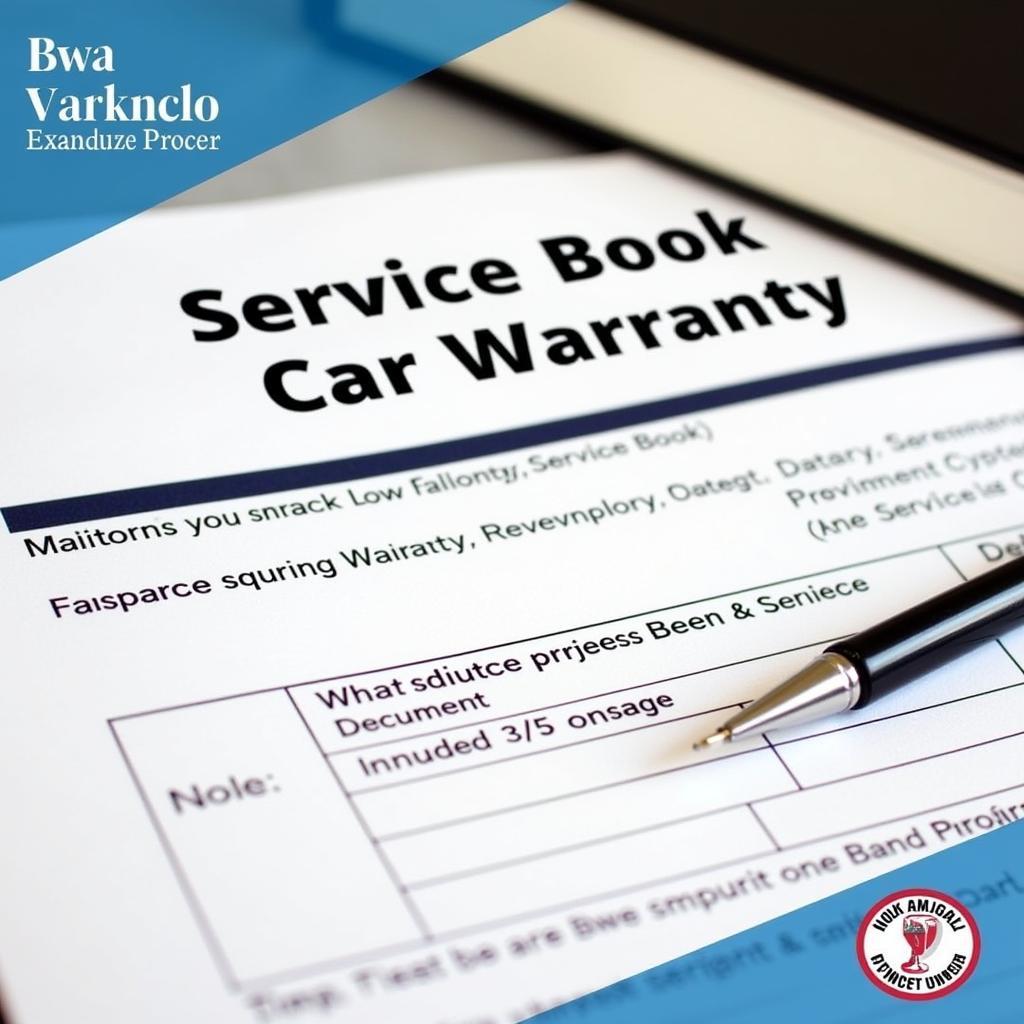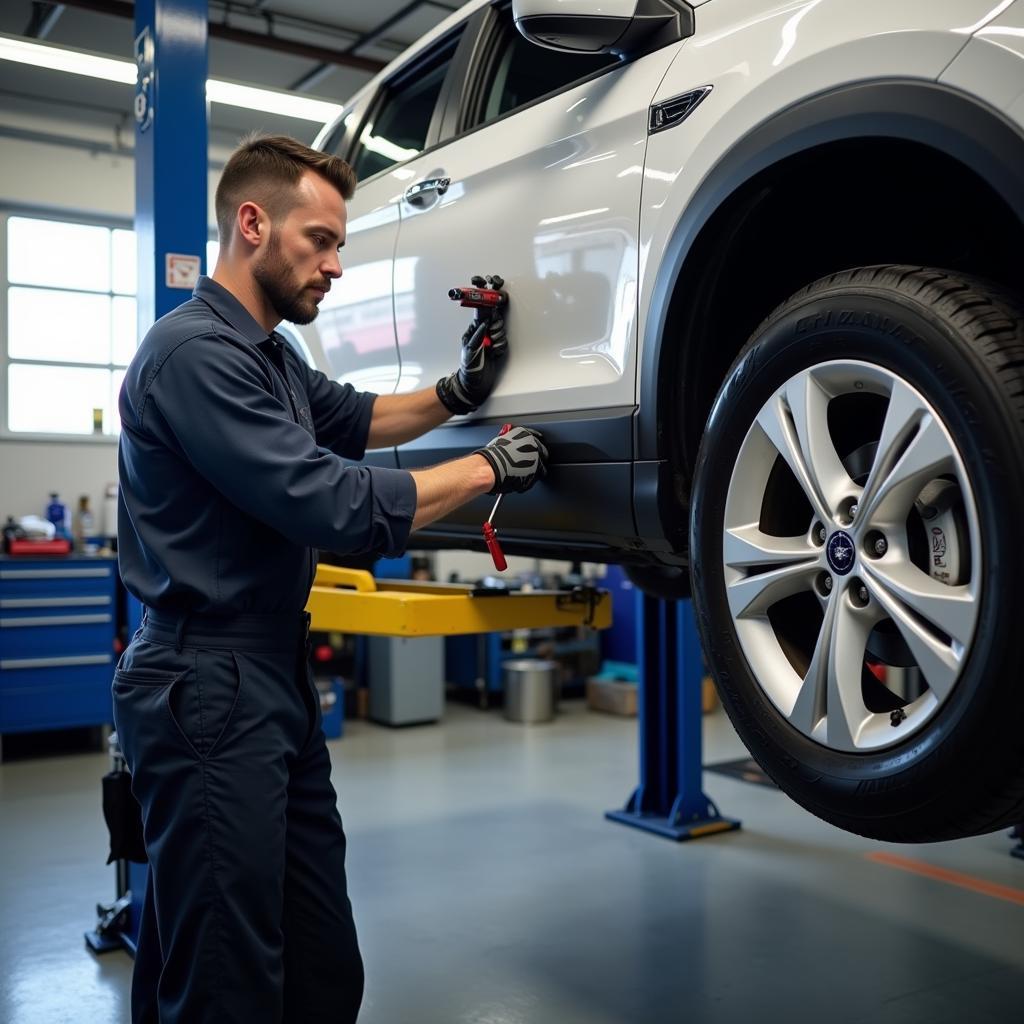Do You Have to Service Your Car to Keep Warranty?
Do You Have To Service Your Car To Keep Warranty? It’s a common question for car owners. Understanding the relationship between regular car servicing and maintaining your warranty is crucial to protecting your investment and avoiding costly repairs down the line. This article will delve into the specifics of car warranties, scheduled maintenance, and what you need to know to keep your coverage valid.
Maintaining your car’s warranty can seem daunting, especially with the complexities of service schedules and dealership requirements. This often leads car owners to wonder, do you have to service your car to keep warranty? The short answer is: it depends. While regular maintenance is essential for the longevity of your vehicle, it doesn’t always dictate the validity of your warranty. The key lies in understanding the specific terms and conditions outlined in your warranty agreement.
Decoding Your Car Warranty: Understanding the Fine Print
Most new cars come with a manufacturer’s warranty, covering certain defects for a specific period. This warranty is a legally binding contract between you and the manufacturer. It outlines the conditions under which they will repair or replace covered parts. Crucially, it also specifies the maintenance requirements you must meet to keep the warranty valid. These requirements typically involve following the manufacturer’s recommended service schedule, using genuine parts, and keeping detailed service records. Failure to adhere to these stipulations could void your warranty, leaving you responsible for expensive repair bills. You might be wondering, how do I get the service history of my car? Maintaining accurate records is crucial.
 Car Warranty Document and Service Book
Car Warranty Document and Service Book
It’s important to differentiate between regular maintenance, like oil changes and tire rotations, and warranty-covered repairs. While regular maintenance keeps your car running smoothly, it doesn’t necessarily mean it’s covered under warranty. Warranty coverage typically applies to defects in materials or workmanship. Understanding this distinction is key to navigating the sometimes confusing world of car warranties. For example, you may need to understand what is a B1 service on a car to ensure you’re meeting the requirements.
Manufacturer Recommended Service vs. Independent Shops: Does it Matter?
Another common question is whether you have to service your car at a dealership to maintain your warranty. The Magnuson-Moss Warranty Act, a federal law, protects consumers against such requirements. You are free to have your car serviced at an independent shop, as long as they use parts equivalent to the manufacturer’s specifications and follow the recommended service schedule. Keeping detailed records of these services is paramount. This is important if you’re looking into who services Fisker cars, for instance.
 Mechanic Working on a Car in an Independent Shop
Mechanic Working on a Car in an Independent Shop
It’s important to note that while you can choose where you service your vehicle, the burden of proof rests with you. If a warranty claim arises, you must demonstrate that the independent shop followed the manufacturer’s recommended service procedures and used appropriate parts. This is why meticulously maintaining service records is crucial. These records are your proof that you’ve met the warranty requirements.
What if I Miss a Service?
Life gets busy, and sometimes a scheduled service might slip your mind. What happens then? Missing a service doesn’t automatically void your warranty. However, if a problem arises that can be directly attributed to the missed service, the manufacturer might deny your warranty claim. For example, if you skip an oil change and your engine suffers damage, the manufacturer could argue that the damage resulted from your negligence, not a manufacturing defect. Therefore, it’s always in your best interest to stick to the recommended service schedule as closely as possible. Many people also ask, do you have to get 30k service on car? Understanding these specific service requirements is essential.
Protecting Your Investment: The Long-Term Benefits of Regular Service
Beyond maintaining your warranty, regular servicing offers numerous long-term benefits. Routine maintenance can prevent small problems from escalating into major, costly repairs. It also keeps your car running efficiently, improving fuel economy and reducing emissions. Regular service also enhances the resale value of your vehicle. A well-maintained car with a complete service history is much more attractive to potential buyers. While some car owners might find dealership service prices inflated, wondering why do car dealerships try to rape you on service, remember that neglecting maintenance can lead to far greater expenses in the long run.
Conclusion: Service Smart, Drive Confidently
Do you have to service your car to keep warranty? The answer isn’t a simple yes or no. It depends on the specific terms of your warranty agreement. Understanding these terms and diligently following the manufacturer’s recommended service schedule is crucial for protecting your investment and maintaining your warranty coverage. By prioritizing regular maintenance and keeping accurate records, you can drive confidently, knowing that you’re doing everything possible to keep your car running smoothly and maintain its value.
FAQ
- Can I use aftermarket parts and still maintain my warranty? While you can use aftermarket parts, the manufacturer might deny a warranty claim if they believe the aftermarket part caused the problem.
- What should I do if my dealership refuses to honor my warranty? Contact the manufacturer directly and explain the situation. You can also consult with a consumer protection agency or an attorney.
- How long should I keep my car service records? It’s advisable to keep them for as long as you own the vehicle, and even longer if you plan to sell it, as they can add value.
- What if my car develops a problem right after the warranty expires? While unfortunate, there’s little recourse unless you have an extended warranty. This highlights the importance of thorough maintenance throughout the warranty period.
- Is there a difference between a powertrain warranty and a bumper-to-bumper warranty? Yes, a powertrain warranty covers the engine and transmission, while a bumper-to-bumper warranty covers most other components.
- Does my warranty cover wear-and-tear items like tires and brakes? Generally, no. Wear-and-tear items are considered maintenance expenses and are not typically covered under warranty.
- Can I transfer my car warranty to a new owner if I sell my car? In many cases, yes. Check your warranty agreement for details on transferability.
Need more information? Check out our other helpful articles: How do I get the service history of my car? and What is a B1 service on a car?
For any assistance, contact us via WhatsApp: +1(641)206-8880, Email: [email protected] or visit us at 456 Oak Avenue, Miami, FL 33101, USA. Our customer service team is available 24/7.

